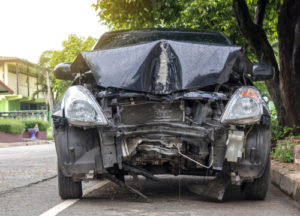
The four elements of negligence are the foundation of any personal injury case. When pursuing financial compensation for damages a liable party caused, you must prove these elements of negligence. You or your attorney will use evidence and the law to do this.
Building a negligence-based claim can be challenging for those unfamiliar with the legal system. Continue reading to learn more about negligence and how a Rutherfordton personal injury lawyer with our firm can assist with your case.
What Are the Four Elements of Negligence?
The Legal Information Institute (LII) defines negligence as “the failure to behave with the level of care that a reasonable person would have exercised under the same circumstances.” Negligence can include a person’s actions or lack of action when they have a legal duty to act.
To win compensation from a liable party, you must prove the following four elements of negligence:
- Duty of care. The duty of care is the obligation we all have to avoid harming others. The specifics of the duty of care vary from situation to situation. For example, motor vehicle operators have a duty to obey traffic laws and avoid dangerous behaviors.
- Breach of duty. When a party behaves in a way that most reasonable people would not under the same or similar circumstances, they breach the duty of care. In a car accident case, a breach of duty may include speeding, tailgating, texting and driving, or running a red light.
- Causation. Causation links the liable party’s breach of duty and your injury. To prove causation, you must show the at-fault party’s behavior directly caused the situation that injured you. Continuing with the example of a motor vehicle accident, establishing causation may involve proving a driver was distracted and not looking at the road when they ran a red light and crashed into your car. As a result, you and your passenger suffered a broken leg and concussion.
- Damages. Damages are your economic and non-economic losses. You must show that your injury led to financial expenses and pain and suffering to prove your damages.
What Evidence Do You Need to Prove Negligence?
You must collect evidence and use it to build a case proving the four elements of negligence. While the exact evidence needed will vary based on your accident and injuries, in general, it may include the following:
- Police reports or official accident reports
- Eyewitness accounts
- Surveillance, cell phone, or dashcam video of your accident
- Photographs of the accident scene
- Medical records
- Medical and scientific research
- Crash reconstruction reports
- Commercial driver’s logs
- Expert testimony
- Medical bills, receipts, pay stubs, estimates, and other proof of your financial losses
- Statements from your doctors, friends, family, and coworkers about your pain, suffering, and inconvenience
Personal Injury Lawyer Near Me 828.286.3866
Are There Different Types of Negligence?
The type of negligence so far discussed is ordinary negligence, but there are various types of negligence, including the following:
- Vicarious negligence. Also called vicarious liability, this legal principle holds employers financially responsible for their employees’ negligent actions.
- Gross negligence. Gross negligence involves extreme recklessness and a disregard for others. Examples of gross negligence may include drinking and driving, excessive speeding, or “road rage.” In rare cases, when the court determines a defendant was grossly negligent, it may award punitive damages to the victims.
- Comparative and contributory negligence. South Carolina follows a modified comparative negligence system that allows you to recover compensation from an at-fault party if you are less than 50 percent responsible for your damages. However, the court will reduce your awards proportionally. North Carolina follows a pure contributory negligence model that bars you from seeking monetary compensation if you bear any degree of fault.
What Compensation Can You Recover If You Suffered a Negligence-Based Injury?
If you suffered a personal injury caused by negligence, you can pursue the following damages from a liable party:
- Current and future medical expenses
- Lost wages, earnings, and employment benefits
- Lost future earning capacity
- Vehicle repair or replacement costs
- Personal property damages
- Household services
- Physical pain and suffering
- Mental and emotional distress
- Impaired quality of life
- Loss of enjoyment of life
How Long Do You Have to Sue a Negligent Party?
You have a limited time to sue for negligence. In North Carolina, the statute of limitations for personal injury is three years, according to N.C. Gen. Stat. §1-52. You have two years to file a wrongful death lawsuit under N.C. Gen. Stat. § 1-53.
In South Carolina, S.C. Ann. §15-3-530 allows three years to file a personal injury or wrongful death case.
If you do not act within these deadlines, you may be unable to recover compensation.
Do You Need a Personal Injury Lawyer to Help With Your Negligence Claim?
Working with an attorney can take the stress and burden of your negligence claim off your shoulders. While you rest and recover, a personal injury attorney with our law firm can:
- Investigate the cause of your injury and collect supporting evidence
- Prove the four elements of negligence
- Identify and calculate your damages
- Prepare and file your insurance claim or lawsuit
- Communicate with insurance agents, opposing counsel, and other parties on your behalf
- Defend you from blame for your accident (which could lower your awards or bar you from seeking damages altogether)
- Negotiate for the maximum compensation possible
- Represent you at trial if necessary
Our firm can help with many types of negligence-based cases, including those involving the following:
- Car accidents
- Truck accidents
- Motorcycle accidents
- Bus accidents
- Construction accidents
- Pedestrian accidents
- Brain injuries
- Spinal cord injuries
- Workers’ compensation
- Wrongful death
Call Farmer & Morris Law, PLLC, for Help Proving Negligence in an Injury Case
Farmer & Morris Law, PLLC, aims to provide our clients with excellent legal representation throughout their cases. Our team can put our firm’s resources and knowledge behind proving the four elements of negligence and getting your deserved compensation.
Contact us today for a free consultation. A team member is available 24/7 on our helpline to answer your questions. We take personal injury cases on contingency, meaning our services cost nothing upfront or out of pocket. We have four offices in North and South Carolina. Connect with a lawyer near you today.









